
18 minute read
What you should know
BEFORE YOU GO
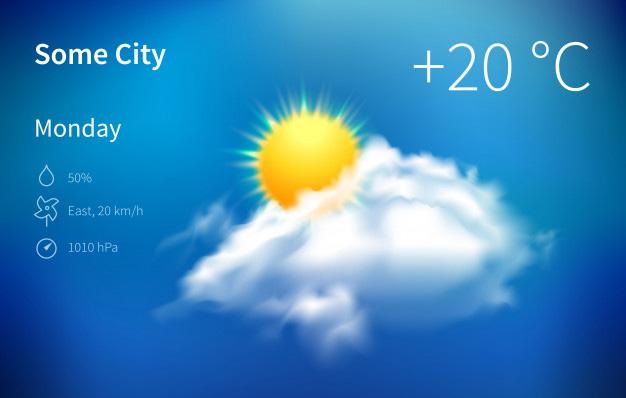
Advertisement
When to visit!
Nigeria can be visited all year round but the traveller planning a visit should take the following into consideration: rainfall, particularly in the south, between May and September. Rainfall can be heavy in June and can cause some inconveniences. Temperature ranges from 23–31°C in the south, with high humidity and much higher in the north. A cooler, but dusty harmattan season usually stretches from December to January.
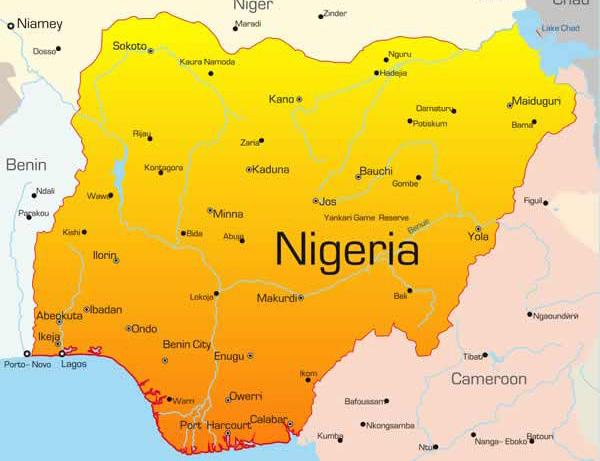
Language
English is the official language of Nigeria and it is used at all levels of administration, law, commerce and education. It is spoken with varying degrees of fluency by 50% of the population, making Nigeria the largest English speaking country in Africa. However, there are three major ethnic languages: Hausa - mainly spoken in the North; Yoruba - spoken in the West; and Igbo - spoken in the East. Another widely spoken language in Nigeria is the Pidgin English (though with varying regional influences on dialect and slang). Other Languages include Kanuri, Edo etc.

Currency
Nigeria’s currency is the naira (N) which is divided into 100 kobo. Currency notes are issued in denominations of N5, N10, N20, N50, N100, N500 and N1000. Coins are issued in 10K, 25K, and N1. Except for hotel bills in some hotels, foreigners can do their shopping and other business in the local currency. There are a number of Bureau De Change and banks at each international airport where the visitor can convert from local to foreign currency, and vice versa. Major banks with international branches operate electronic money transfer services, and it is safe to use your credit cards for your hotel bills and at other recognised outlets.
Currency regulations
There are no restrictions on importation of foreign currency. A currency declaration is however required both on arrival and departure, for large sums of money in excess of US$5,000.00. Import or export of Nigerian currency is strictly limited to N5.000 (five thousand Naira only). Hotel expenses or bills may be paid for in foreign currency. Personal baggage up to 20 kilograms and belongings such as cameras and laptops for the use of bonafide visitors are admitted free of duty. In addition, 200 cigarettes or 50 cigars or 225 grams tobacco are allowed. The importation of illegal drugs is punishable by a jail term.
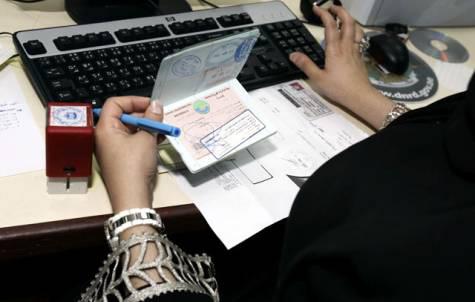
Entry formalities
Visitors from the Commonwealth countries as well as other nations require an entry permit, obtained in advance, and the application should be supported by a letter of invitation and a return ticket for the journey. Processing will take at least two days.

Vaccination
An international vaccination certificate against yellow fever (10 years) is required. Cholera (six months) is also required if coming from an infected area. Prophylactic anti-malaria and TB inoculation are recommended. Nigeria is a tropical country and therefore, it is necessary to protect yourself against malaria. It is advisable to take recommended medication from your country of departure. The most recommended drug for use in Nigeria is Chloroquine Phosphate taken once a week. To be started two weeks before departure and continued throughout the stay here until two weeks after returning.
To enter Nigeria, a valid passport and visa are both required for nationals of virtually all countries. Passports must be valid for at least six months after the period of intended stay. All visitors to Nigeria must hold passports or ECOWAS travelling documents (for nationals from ECOWAS member countries). Citizens of countries for which Nigeria requires visas must obtain entry information and visas in advance from Nigerian embassies or consulates abroad. Visas cannot be obtained aboard planes or at the airport. Check your nearest Nigerian embassy or consulate for more information on travel requirements.

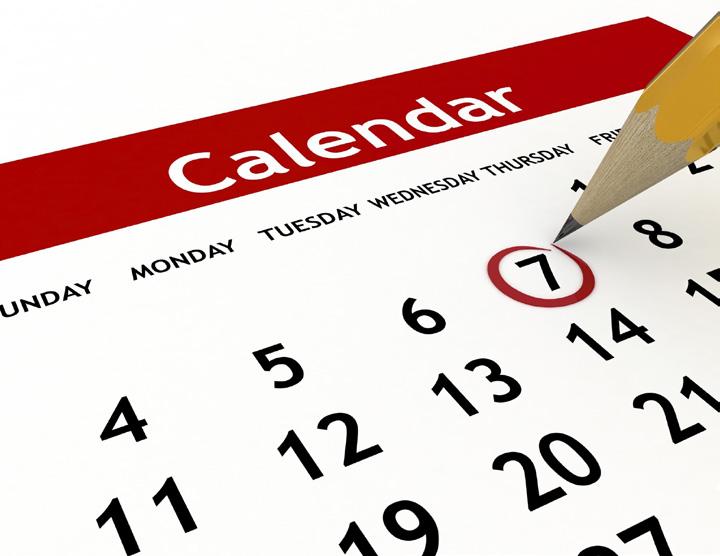
REACHING NIGERIA
By Air: There are international airports in Lagos, Abuja, Kano and Port Harcourt Domestic flights operate between all the major cities. Some airlines that fly to Nigeria include Arik Air (London, New york - Lagos, Abuja), British Airways (London - Abuja, Lagos), Virgin Atlantic (London - Lagos), KLM (Amsterdam - Abuja, Lagos, Kano), Air France (Paris- Lagos and Port Harcourt), Alitalia (Milan -Abuja, Lagos), Turkish Airline (Istanbul -Lagos), Lufthansa (Frankfurt - Abuja, Lagos), Iberia Airlines (Madrid-Lagos), North American Airlines (Baltimore/Washington, New York - Lagos), Delta Airlines (Atlanta - Lagos). Others include China Southern Airlines, Emirates, Middle East Airlines, Qatar Airways etc.
Getting around
Public Transport: The entire country is well connected. Getting around is relatively easy, except that there could be delays owing to traffic jams in some cities. As usual, there are multitudes of coaches and buses that will take you to any part of Nigeria you wish.
Self Drive / Hire Cars: Road conditions in the cities are good. Petrol is very cheap in Nigeria. Driving is on the right hand side and an International Driving Licence is required. Car hire is available in Lagos, Abuja and other major cities.
By Boat: Transport by boat is not widespread unless you venture into Lagos and other riverine areas of Nigeria.
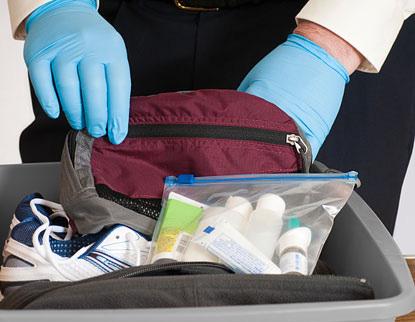
Baggage Examinations
International airports in Nigeria are staffed by Customs Officers who conduct normal checks of baggage on all international arrivals. Standard security checks are in operation at all Nigerian entry ports.

Airport customs
Visitors to Nigeria are allowed 4 litres of alcoholic beverages and 200 cigarettes duty-free. Visitors may export souvenirs, although some articles (e.g. animals skins and antiques) require an export permit. Illegal drugs of any description are not allowed into Nigeria. Please check with a Nigerian Embassy, Consulate or High Commission nearest to you for current information before departure.
Nov/Dec 2020
PUBLIC HOLIDAYS
1 Jan: New Year’s Day 26 Feb: Mouloud (Birth of the Prophet) 25 Mar: Good Friday 28 Mar: Easter Monday 1 May Workers’ Day 29 May: Democracy Day 1 Oct: Independence Day 06 Jul Eid al-Fitr (End of Ramadan) 10 Sept Eid al-Kabir (Feast of the Sacrifice) 25 Dec: Christmas; 26 Dec: Boxing Day
MUSLIM FESTIVALS
Muslim festivals are timed according to local sightings of various phases of the moon and the dates given above are approximations. During the lunar month of Ramadan that precedes Eid al-Fitr, Muslims fast during the day and feast at night and normal business patterns may be interrupted. Many restaurants are closed during the day and there may be restrictions on smoking and drinking. Eid al-Fitr and Eid al-Kabir (Eid al-Adha) may last anything from two to 10 days, depending on the region.
Time Zone
Nigeria is 1 hour ahead of GMT, meaning that during daylight savings, it would be 12:00 in London, 1:00pm in Nigeria and 8:00am in New York.
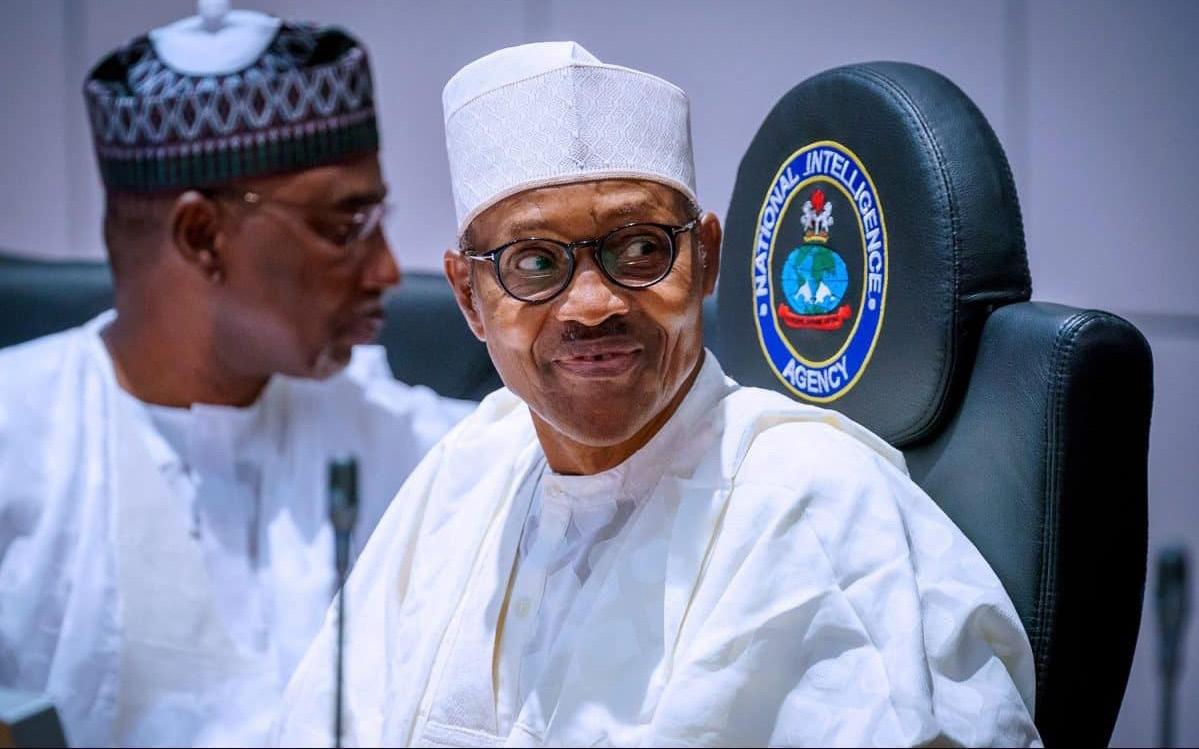
The year 2020 will start on a high note for African travellers with Nigeria’s President Muhammadu Buhari announcing visas on arrival for all Africans coming to Nigeria. West African States (ECOWAS) passport could come into Nigeria without the need for visas. Citizens of a few other countries with which Nigeria had agreements could come into the country and obtain a permit on arrival.
President Buhari announced visa on arrival for all Africans while attending the Aswan Forum for Sustainable Peace and Development in Africa, taking place in Egypt. They are yet to reveal the finer details of the new policy. The announcement, though well-received, raises questions about whether the president would follow through with immigration changing its policies. President Buhari who ordered the closure of Nigeria’s borders with her neighbours, Benin Republic and the Niger Republic has come under criticism for the border closure, which many views as retrogressive.
The shutdown was also criticised as a threat to the signed economic pact African Continental Free Trade Area (AfCTA). President Buhari’s order to close the Nigerian border to prevent smuggling of goods, and his announcement of visa arrival for all Africans, on the other hand, is a contradiction that shows Nigeria’s policy inconsistencies. across the continent considering it is often cumbersome for African nationals to obtain permits to visit other countries across the continent. Countries such as Sierra Leone, Ethiopia, Kenya and Rwanda are among the few which grant visa on arrival to all Africans.
Travelling in Africa remains a considerable challenge. Not just in regards to obtaining visas to other African countries but also in travel cost. Flying from the United Kingdom to Nigeria, for example, is cheaper than flying from Nigeria to Cameroon, a neighbouring nation. President Buhari spoke during the opening session of the Aswan Forum for Sustainable Peace and Development in Africa on Wednesday (Dec. 11). He said, “As Africans, it is important to focus on the issues of conflict prevention and resolution.
Conflicts have devastating effects on our societies, and they militate against our progress. In this regard, the need to silence the guns cannot be overemphasised.”
Source: AllAfrica.com
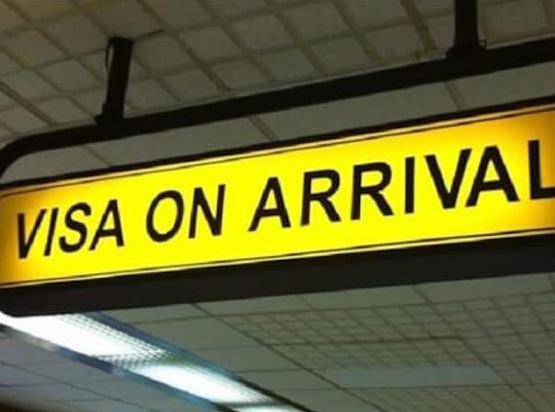
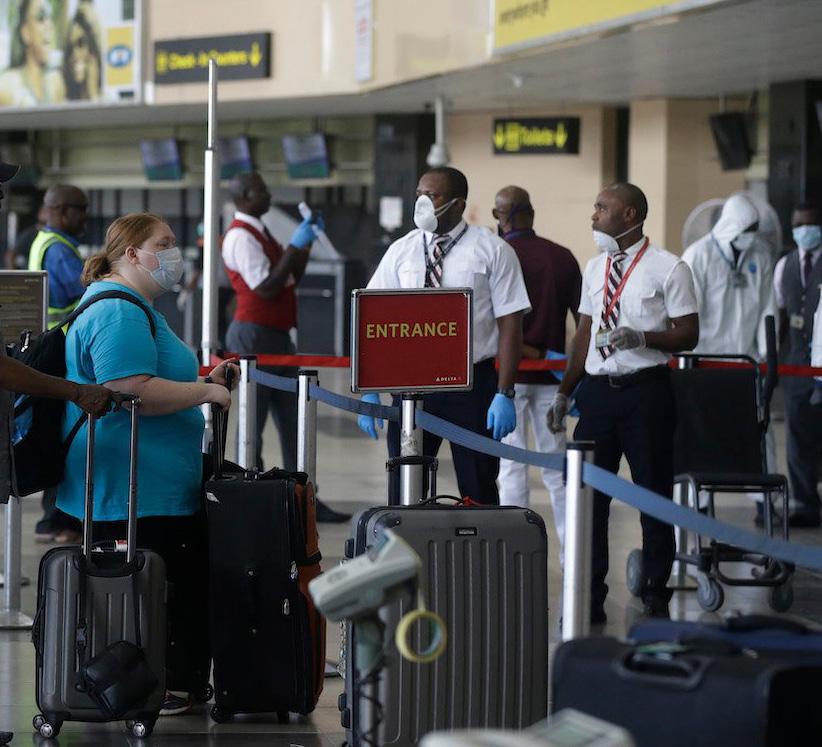
8.4million passengers passed through Nigerian airports in Q1, Q2 2019
The Nigerian Bureau of Statistics, NBS says 8,487,698 passengers through Nigerian air space in Q1 and Q2 of 2019. In its quarterly Air Transportation Data report for Q1, Q2 2019 released on its website, the bureau said of the 8.4million passengers, 4,002,528 passed through the air space in the first quarter of 2019, a 3.87% year-on-year growth from the same quarter of 2018; and 4,485,170 in the second quarter of 2019, a year-on-year increase of 6.82% from the same quarter in 2018.
The report indicates that the first two quarters of 2019 saw the diverse performance in the various items that make up airport transportation in Nigeria. Consequently, it said there was 12.06% growth in passengers for Q2 2019 when compared to Q1 2019 numbers. According to the NBS, total aircraft traffic within the period declined year-on-year for Q1 (-1.04%) & and increased for Q2 (2.60%), when compared to the corresponding quarter in 2018. It, however, pointed out that aircraft traffic in the first half of 2019, totalled 138,464, a 100.61% growth from total aircraft recorded in the same period last year. “The total number of passengers who passed through Nigerian airports reached 4,002,528 in the first quarter of 2019, a 3.87% year-on-year growth from the same quarter of 2018; and 4,485,170 in the second quarter of 2019, a year-on-year increase of 6.82% from the same quarter in 2018. “Consequently, there was 12.06% growth in passengers for Q2 2019 when compared to Q1 2019 numbers. “Total aircraft traffic declined year-on-year for Q1 (-1.04%) & and increased for Q2 (2.60%) when compared to the corresponding quarter in 2018. In the first half of 2019, aircraft traffic totalled 138,464, a 100.61% growth from total aircraft recorded in the same period last year. “A year-on-year decline of -0.65% was recorded in Cargo movement in H1 2019 while there was a 26.39% increase in total mail traffic recorded in the first half of 2019 when compared to the same period last year.”
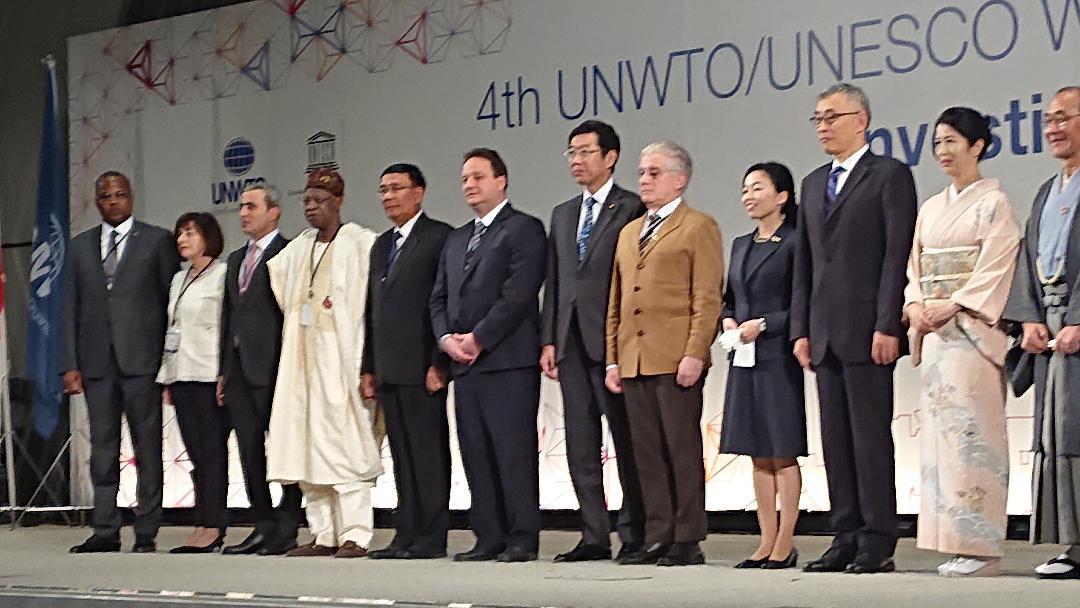
FG To establish community museums as UNWTO/ UNESCO seek preservation of cultural identities
The Federal Government has announced plans to develop community museums as part of efforts to ensure that local communities benefit from tourism. The Minister of Information and Culture, Alhaji Lai Mohammed, announced the plan on Thursday at the ongoing 4th World UNWTO/ UNESCO World Conference on Tourism and Culture in Kyoto, Japan. “In Nigeria, we observed that tourists stay in big cities when they visit. They visit the museums in the towns where objects gotten from different parts, including the rural areas, are displayed, but they hardly go to the rural areas. We are trying to establish community museums to encourage tourists to visit rural areas where money spent is quickly reflected in the local economy. The Minister said this while serving as one of the panellists at the Ministerial Segment of the conference, dedicated to discussing and exchanging policies and government models that will impact the future of cultural tourism. Alhaji Mohammed said the government would, in particular, encourage the establishment of palace museums. “Parts of ancient residencies of traditional rulers and important chiefs are being turned to museums. Thus, we are not limiting museums to big cities. Money spent by tourists while visiting these rustic places stays longer in these areas. Lamido Adamawa now has the Fombina Palace museum, just like the Emir of Potiskum has palace museum,” he said. He said the government, is supporting and promoting festivals and cultural tourism all over the country, through high-level representation, training of festival managers and the provision of enabling environment, with the ultimate goal of ensuring that local communities benefit from such events. The Minister assured that he would soon unveil a national calendar of festivals to assist tourists, who are coming to Nigeria in planning their visits. Alhaji Mohammed said that Nigeria has continued to leverage on the areas in which it enjoys a comparative advantage, citing music, movies, and fashion as some of such areas. Meanwhile, the World Tourism Organisation (UNWTO) and the United Nations Educational, Scientific and Cultural Organisation’s (UNESCO) Fourth World Conference on Culture and Tourism spotlights the added value of culture for destinations and focuses on the future sustainability of cultural tourism. At the Japan conference, delegates debated how to keep the appreciation of heritage and contemporary cultural expression at the heart of tourism for generations to come. Intercultural dialogue, local communities, and innovative measurement systems are at the core of the conference conclusions laid down in the Kyoto Declaration. UNWTO Executive Director Manuel Butler said: “When managed responsibly cultural tourism can enrich the lives of both travellers and residents, promoting diversity and intercultural dialogue. The Kyoto Declaration will help us to ensure that our world’s rich heritage and diverse creativity are wonders that our children too will have the chance to discover for themselves.”
UNESCO Deputy Director-General, Mr Xing Qu, added, “The international community needs to seize the benefits of connecting culture and tourism as global forces that bring people together. UNESCO is pleased to be partnering with UNWTO in this venture as we look to deepen and widen our collaboration.”
Responsible practices were at the forefront of the solutions put forward by leading experts in the field, such as including the local population at every level of cultural tourism development and using new technologies to sustainably manage visitor flows and the equal distribution of tourism benefits.
Kyoto’s Mayor, Mr Daisaku, presented the ‘Kyoto Model’ to representatives from over 50 countries across the world as a means of effectively striking the right balance between marketing cultural heritage and preserving it for future generations.
In close consultation with indigenous entrepreneurs, advocates and representatives, UNWTO also launched the UNWTO Recommendations on Sustainable Tourism Development during the conference. The recommendations to guide developing sustainable and responsible operations to indigenous communities that want to open up to tourism development or improve the existing tourism experiences their communities offer. Source The Guardian
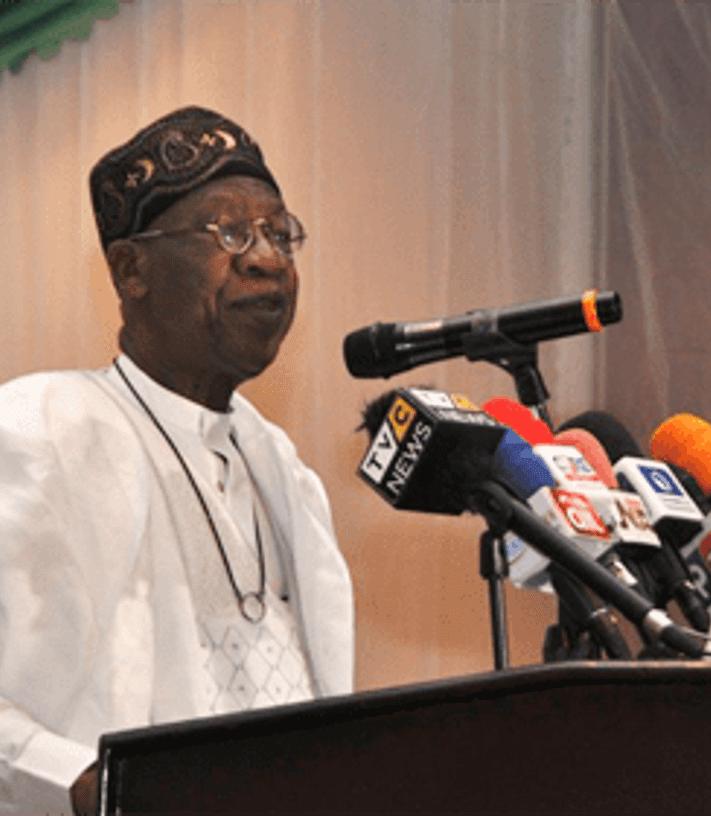
Trade and Investment
NIGERIA INVESTMENT GUIDE: THE FACTS THAT MATTER ABOUT NIGERIA
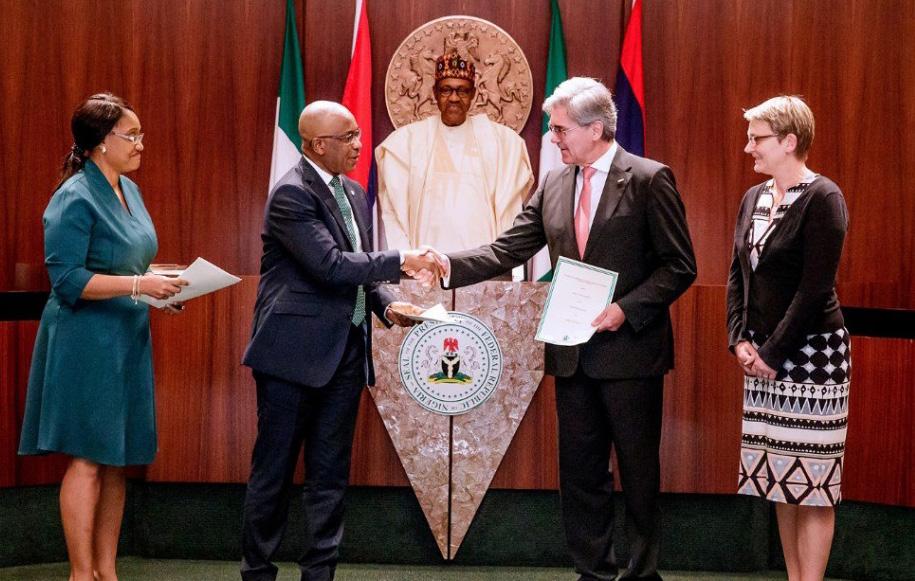
There are many reasons why Nigeria remains a compelling consideration for any investor seeking to participate in the economic potential that the African continent represents.
Nigerians are entrepreneurial, hardworking and have a can-do spirit that translates to energetic optimism. The Nigerian economy, the largest on the continent, is powered by a private sector which regularly innovates to meet the growing needs of the broad domestic market. The increasingly sophisticated needs of Nigerian consumers in the retail, entertainment and service sectors are as likely to be served by innovative and ambitious small and medium companies, as by great local and global brands.
Then there is the scale and demographic structure of its 196 million population, which is estimated to become the world’s third-largest by 2050. With a median age under 19, Nigeria has a large population of tech-savvy, hardworking, optimistic and mobile youth. About 90% of the population is under 50, assuring a large, English-speaking talent pool for many years into the future.
Nigeria also has abundant natural resources. The country is ranked as one of the world’s top 10 for proven oil and gas reserves and is wealthy in minerals such as tin and iron ore. Nigeria is also home to some of Africa’s most productive agricultural land. The agrarian zones, stretch from the tropical savanna in the north to the coastal rainforest in the south, the mangrove of the Niger Delta complemented by tropical and semi-temperate weather prevalent across the country, support the cultivation of a wide variety of agricultural produce from exotic fruits, vegetables and tree crops to root crops. Just as important, many of its current economic growth drivers are unashamedly 21st Century, including telecoms and financial services, media and manufacturing.
It strategically located, just one hour ahead of GMT and within easy trading distance of Africa’s most significant business centres, from Cairo to Johannesburg, Addis Ababa to Casablanca. Its land borders with Benin, Cameroon, Chad and Niger make it a natural hub for the West African region. And its trading infrastructure is strong and resilient, with four international airports, three significant seaports and fast-improving road and rail networks.
Although the above factors all combine to make Nigeria an essential component of any pan-African strategy, the country’s growing economic success is about much more than population, geology and geography. The value of Nigeria’s trade has more than quadrupled during two decades of stable civilian government. In 2018 alone, the economy grew by US$21.1 billion - that’s more than the combined GDP of Rwanda and the Niger Republic. The cost of doing business in Nigeria is also competitive, in comparison to similar developing markets across the world.
Growth is accelerating as the government’s recent reforms, aimed at improving the business climate, take firmer hold. In the last three years, 140 such improvements have significantly streamlined many essential processes, from a 360% reduction in the time taken to file corporate income taxes to a 26% fall in the cost of registering a business and a 30% reduction in import documentation.
These changes are reflected in how Nigeria is perceived externally. It is rising rapidly up the World Bank’s ‘Doing Business’ league table, moving 36 places since 2016 to rank in the world’s top 70 countries by 2023. The government’s commitment to improving the business climate and institutionalising its broadbased reform efforts are essential for meeting this ambition. And is supported by generous incentives and investor protections, improving the attraction for anybody aiming to realise the opportunities offered by doing business in Nigeria.
This Nigerian Investment Guide has been created to help you understand these opportunities and find out about the organisations, processes and services in place to help you make the most of them. It is a highlevel introductory overview, but if you need more detailed guidance on specific industries or market sectors, further resources are available at www.nipc.gov.ng, the website of the Nigerian Investment Promotion Commission (NIPC), the government agency mandated to encourage, promote and coordinate investments in Nigeria. I hope you find this guide informative and useful.
I hope it gives you the insights you need into the prospects of doing business in one of the world’s most exciting developing economies.
Source: prochareng.com
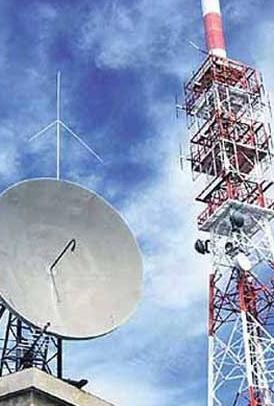
Nigeria Unveils $732 Million Broadband Project to Boost the Economy. Dangote to Generate $30bn Annual Revenue by 2022.
Nigeria plans to invest 265 billion nairas, ($732 million) in broadband infrastructure over the next four years as the government sets its sights on nationwide coverage and to boost the economy recovering from a 2016 contraction.
The government will provide 65 billion nairas for the project and six private infrastructure companies the balance under a public-private partnership, according to Umar Danbatta, the chief executive officer of the Nigerian Communications Commission.
The government of Africa’s biggest producer of crude oil wants to increase connectivity for the nation’s almost 200 million people as part of a drive to boost business and help diversify the economy away from the commodity.
The West African nation plans to roll out an additional 30,000 kilometres (19,000 miles) of fibre across its 774 local governments, taking the total to 71,000 kilometres by 2024, Danbatta said in a telephone interview from the nation’s capital, Abuja. The penetration rate could rise to 65% from 38%, he said.
The commission plans to start the project this year after obtaining government approval. Danbatta said. “There will be data everywhere in the country, and it will be cheap.”
Source: Businessday.ng Aliko Dangote, Africa’s richest man, has said his group of companies will generate a total sum of $30 billion in annual turnover by 2022.
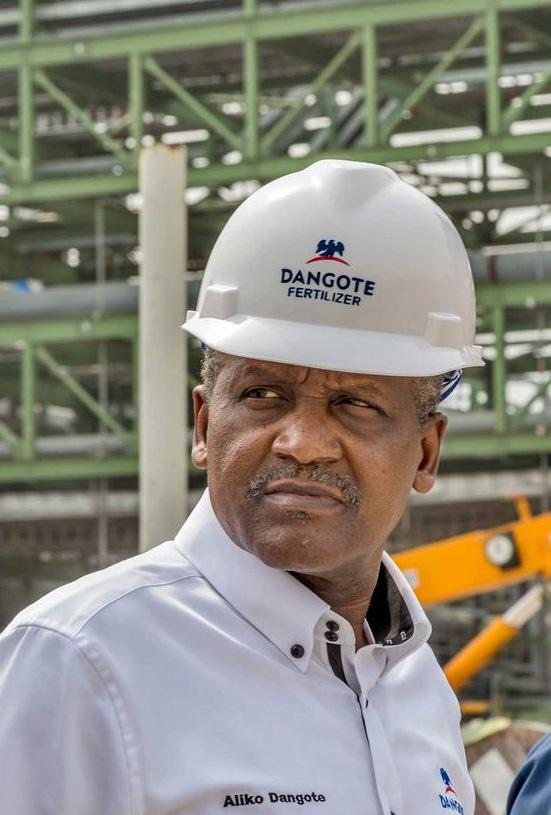
The billionaire based his estimation on Dangote Refinery Ltd scheduled to commence operation soon. According to Dangote, the over $12 billion projects will enhance the company’s turnover in two years and strengthen its capital base.
Presently, the group annual revenue stood at $4 billion mainly from Cement, Flour and Sugar units of the company. Dangote, while responding to questions from reporters, lauded government’s efforts at diversifying the economy. He said: “We have massive arable land, we have water; we have the right climate; so, the population growth does not make me nervous. So, I think the federal government is doing very well by focusing more on the agricultural sector. We just have to tilt towards agriculture and manufacturing as against our oil-reliant economy.”
“Sixty per cent of the government revenue is coming from oil, but the government is doing quite a lot to diversify the economy by trying to restructure the tax system because we need to make more money from taxes.
As it is now, the taxes generation in Nigeria is a bit low, but the government is on the right track with these innovations.”










